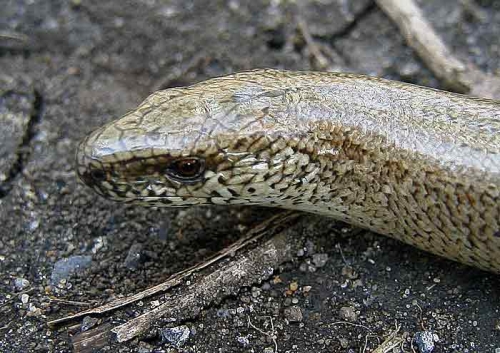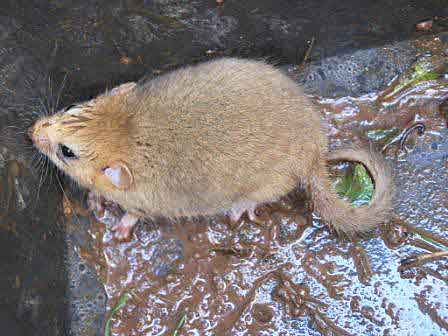David Clements Ecology Ltd
Environmental Consultants in Penarth
Carlton House
5 Herbert Terrace
Penarth
South Glamorgan
CF64 2AH
Contact Numbers
Social
Key Services
About
David Clements Ecology Penarth | Ecology Consultancy Cardiff
Ecological and wildlife consultancy, with special expertise in protected species and licensed works. Mainly planning and development related, but also strategic projects, applied research, Environmental Impact Assessments etc.
Habitat Surveys
Extended Phase 1 Habitat surveys give you a clear idea of what is or may be present on your site, and these are based on Phase 1 vegetation survey technique which was first developed by the former Nature Conservancy Council in the 1980s. Since then, a range of more sophisticated methods have emerged for the survey of botanical habitats.
Extended Phase 1 survey is usually the minimum baseline survey which a local planning authority will require for a planning application. This type of survey will tell you what the potential constraints and opportunities are, and what other survey work you might need to commission in order to get your development through the planning system.
This type of survey is often less costly than specialised surveys for an individual species so they offer a good return for your money – letting you plan for the long-term and avoid sudden surprises!
We are also capable of carrying out a wide range of other surveys, however, including Phase 2 National Vegetation Classification (NVC) surveys, River Corridor and River Habitat surveys, hedgerow surveys and many more.
For information on National Vegetation Classification surveys please follow this link
Insects & Invertebrates Survey
DCE Ltd is unusual in being able to provide specialist entomological and invertebrate expertise in-house. David Clements has over 30 years professional experience as an entomologist, having worked as a specialist in museums and for the National Trust, and is a recognised authority on a range of insect and invertebrate groups.
The specialist services we can offer include:
Coverage of a large range of terrestrial and freshwater insects and invertebrates
Rapid baseline site survey and evaluation using an ‘indicator species' approach
Detailed investigations, systematic sampling and trapping
Individual rare species surveys, sampling and research
Licences for the survey and handling of white-clawed crayfish and other protected invertebrate species such as marsh fritillary butterfly
We have an extensive library of technical resources and equipment for carrying out many types of survey.
Windfarm Projects
Wind energy has significant environmental benefits and recent government targets are driving forward the development of additional sites.
However, it is becoming clear that there are potential ecological impacts as a result of such schemes, and assessments to identify, avoid and mitigate these effects are increasingly required throughout the planning process.
Larger developments require comprehensive ecological surveys to inform an Environmental Impact Assessment (EIA) and our company is well placed to carry out these surveys for you. The first stage is normally to carry out scoping surveys to assess a range of potential sites and identify which are most suitable.
Most proposed wind farms will then require detailed botanical surveys to be undertaken, using the methods developed for the National Vegetation Classification (NVC). Such surveys can only be carried out by highly experienced botanists who are capable of identifying the mosses, grasses and sedges that typify the upland plant communities which often occur on suitable windfarm sites.
Windfarms can also have a severe impact on bat and bird populations. Targeted bat and bird surveys will be needed to consider the pattern of activity across and within a site, and to locate important roosts, flight-paths, migration routes and sheltering areas etc. Seasonal variation may also need to be taken into account.
Specialist ornithological surveys are also often required to evaluate whether breeding, migrating or wintering bird species might be affected. Specialised and standardised methods, such as those developed by Scottish Natural Heritage, will often need to be employed.
Smaller applications for single turbines (microgeneration) will often also require survey work – frequently focusing on bat flight-paths and roosts. We can carry out a full range of surveys at varying scales, depending on the needs and scope of the project.
BREEAM & CSH Assessments for Ecology
The BREEAM (Building Research Establishment Environmental Assessment Method) was first introduced in 1990, and covers a wide range of building projects. More recently, the government has introduced the Code for Sustainable Homes (CSH) Assessment for all new residential developments.
The main aims of BREEAM and the CSH are to ensure that building developments are carried out in a sustainable way and take into account the needs of energy efficiency, conservation of natural resources and environmental impacts, including biodiversity issues.
Many government bodies now require new non-domestic buildings to reach a certain standard under the BREEAM. All new buildings funded by the Welsh Assembly Government, or projects built on land that has been sold, leased or disposed of by the WG, must achieve a minimum of Level 3 under the Code for Sustainable Homes if they are residential homes, or an ‘Excellent' rating under the relevant BREEAM scheme if they are non-residential.
Unfortunately, the ecology section is often the last aspect of a BREEAM or CSH assessment to be considered by developers and is often thought to be a simple ‘box-ticking' exercise, but this is very much not the case. For example, a ‘Very Good' or ‘Excellent' rating often cannot be achieved unless the project is awarded at least one credit under LE4 (Mitigating Ecological Impact), particularly as this is a ‘mandatory credit', and this may in turn be unachievable if it has not been considered at an early stage in the layout, design and landscaping of the scheme.
A large number of credits (eg up to 10 in the BREEAM Healthcare scheme) are potentially available under the Ecology section.
These can be very useful if the development cannot achieve the necessary credits under other sections. However, to obtain the maximum number of credits it is necessary to appoint a Suitably Qualified Ecologist (SQE) to oversee these aspects of the work and this is a service which we can offer. DCE Ltd has undertaken dozens of BREEAM and CSH assessments for clients, and we would be very happy to quote you for carrying out an assessment of your scheme.
Research Projects
In 1997-1999 DCE Ltd carried out a project on behalf of the Countryside Council for Wales to study the ecology and life-history of the hornet robberfly (Asilus crabroniformis) a scarce and declining insect which is listed as a ‘Priority Species' of the UK Biodiversity Action Plan, and we continue to maintain a special interest in the history, ecology and management of hedgerows, having developed a novel method of hedge evaluation in the 1990s and going on to contribute to the long-term archaeological and historical studies by the Universities of Bristol and Durham in the Shapwick parish of Somerset.
Current projects include the specialised taxonomy of certain fly families and the creation of a world taxonomic database for ‘thick-headed flies' of the family Conopidae.
Strategic Studies
DCE Ltd has carried out numerous strategic studies for bodies such as local planning authorities, the Countryside Council for Wales, English Nature (now Natural England), the Environment Agency and the Welsh Government.
These included ecological input to a number of LANDMAP studies, including those for the Vale of Glamorgan and Newport county boroughs. We also prepared the draft Local Biodiversity Action Plan (LBAP) for Bridgend county borough, and prepared individual Habitat Action Plans (HAPs) for Monmouthshire County Council.
In partnership with Richard Pryce Consultants, we researched and developed the guidance for the designation of Sites of Importance for Nature Conservation (SINCs, also know as ‘Wildlife Sites') in south and west Wales, and went on to carry out SINC identification, survey and designation projects for the county boroughs of Merthyr Tydfil, Newport and the Vale of Glamorgan.
Reviews
There are currently no reviews for this company
Leave your review of David Clements Ecology Ltd
All fields are required. Your review will appear immediately.



